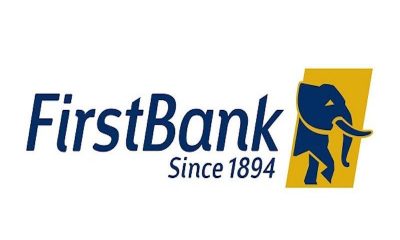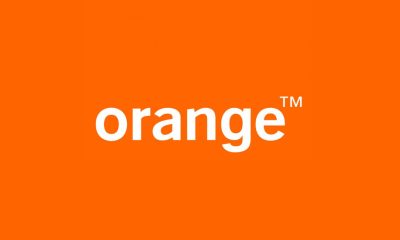Career Tips
Untapped Business Ideas In Africa In 2024

Africa is a rapidly growing continent, and many international investors believe that there is plenty of money to be made there. There are numerous opportunities in Africa that many investors and businesses are unaware of, especially considering the continent’s small but developing economy.
This is not to say that Africa has not evolved, as several countries have undergone economic reforms and are now one of the best places to invest when compared to other countries in the world, particularly because returns can be much higher than in the developed world.
According to research, African nations generated a 14 percent annual return on investment, and Africa is home to nine of the world’s fifteen fastest growing economies. The African continent is rich not only in farmland, but also in people and natural resources, which will become increasingly significant as the world’s population expands.
1. Data Storage & Cybersecurity
Every year, cybersecurity breaches cost African businesses around $3.5 billion. Because of the potential for damage and loss, cybersecurity is rapidly becoming one of Africa’s most critical growing economic prospects.
Individuals and organizations of all sizes are being attacked. From simple email scams to large-scale data theft, fraud, ransomware, espionage, critical infrastructure destruction, and other damaging behaviors, the attacks range in complexity.
According to the Africa Centre for Strategic Studies, up to 96% of cybersecurity incidents in Africa go unreported or unresolved, meaning that cyber threats on the continent are significantly bigger than government estimates suggest.
2. Internet Access and Communication Technology
The Internet market in Africa is worth billions of dollars. It’s not surprising that digital behemoths like Google and Facebook are working hard to improve internet access for millions of Africans. Google’s Project Loon and Facebook’s Free Basics are just two of the many daring efforts to connect Africa.
However, several intelligent African entrepreneurs are already making important contributions to the internet access market. One example is ‘BRCK,’ a Kenyan company that created a rugged internet modem gadget designed for harsh environments with limited internet access and power. The modem can switch between Ethernet, WiFi, 3G, and 4G networks and has a battery life of eight hours.
3. Off-Grid Solar Installation and Power Supply
While politicians in Europe and North America debate the best energy transition strategy for their respective countries, Africa provides a clean slate for renewable energy, particularly solar.
The battle to transmit solar electricity across Africa has developed into a multibillion-dollar industry that draws entrepreneurs and investors from both within and outside the continent. Off-grid solar solutions have immense potential, making solar one of the most intriguing business prospects in Africa right now. And there’s a lot of demand.
Over 600 million Africans are tired of waiting for electricity from centrally controlled power networks that are slow to deploy, inefficient, and unresponsive to the continent’s rising power demand. And, in a continent with over 300 days of sunshine in many places, it’s tough to beat the value proposition of a gadget that bypasses the central power system and meets your energy needs by tapping directly into the sun, a free energy source.
As a result, the African solar business has grown, and the number of companies in this sector is steadily increasing. In Togo, the company has also signed a $4 million collaboration arrangement with the government to supply off-grid solar technology to 300,000 households.
Solar firms such as M-Kopa, Offgrid Electric, Azuri, Mobisol, Lumos, GLP, and others are strategically approaching Africa’s off-grid solar energy industry in Kenya, Ethiopia, Nigeria, Ghana, and Tanzania, having raised approximately $1 billion in funding thus far.This will surely be an exciting area to watch as more funds and companies battle to address Africa’s enormous demand for off-grid solar solutions.
4. Agriculture and Agribusiness
Africa is a good region to establish an agricultural business due to its pleasant climate and abundant rainfall. Africa is well-known for its agricultural exports, which include cocoa, coffee and tea. As a result, agriculture is undoubtedly one of Africa’s underutilized business prospects.
You can raise chickens and export or sell the eggs locally. You may also purchase dairy or meat cattle. Having a milk processing factory can let you produce value-added dairy products like yoghurt and cheese. Fish farming is a viable business enterprise in Africa.
Agriculture has a ready market, and Africa’s climate is ideal. This company is suitable for countries with a favorable agricultural climate, such as Uganda, Tanzania, Ethiopia, Zambia, and Tunisia. Profitable Agro Processing Business suggestions provides other suggestions.
6. E-Commerce Business Opportunity
In the E-Commerce business, there is still plenty of room for fresh ideas and niches. Despite the fact that E-Commerce behemoths like Amazon and eBay appeared to have the entire industry under control at the time, Shopify pioneered a new type of E-commerce business that was a huge success.
E-commerce is one of the most profitable businesses in the world today, as many people prefer to shop from the comfort of their own homes. Create a unique concept, such as Shopify, and you can be confident that international investors will want to work with you.
7. The Green Revolution
Green and eco-friendly products and services are increasingly popular around the world. Because of the issues posed by climate change, every solution that protects the environment, reduces waste and pollution, and promotes reuse and recycling has become a significant business potential. Several African entrepreneurs and businesses are already seizing on this opportunity and finding great success.
Solerebels, founded by Bethlehem Alemu, has become Ethiopia’s first totally eco-friendly footwear brand. This highly successful company makes footwear from recycled rubbish and sells it to customers in North America, Europe, and as far away as Japan.
Thato Kgatlhanye, the founder of Repurpose Schoolbags, makes eco-friendly bags from repurposed plastic shopping bags. There’s also Patrick Ngowi, a Tanzanian entrepreneur who has built a multimillion-dollar solar firm. Another growing opportunity in Africa is the production of biogas from organic waste.
8. Low-Cost Private Schools
The quality of education in Africa’s public schools is quickly declining. This is due to corruption, a lack of understanding, an insufficient budget, and a growing population. As a result, most African parents prefer private schools to ensure their children receive a high-quality education.
Establishing a private school is one of the African business ideas that several entrepreneurs have already adopted, and they are experiencing a good return on investment. Nelson Mandela stated that education is the most powerful weapon you can employ to change the world. Many African countries will be unable to meet the Millennium Development Goal (MDG) of universal primary education enrollment by 2015.
Even after years of implementing Sustainable Development Goal 4, little progress has been made in reducing the global population of out-of-school children (SDG 4). According to the UNESCO Institute for Statistics, total primary enrollment in Sub-Saharan Africa was over 101 million students, with the private sector accounting for 10% (or nearly 10 million children).
9. Payment Alternatives
Every year, more than $100 billion in cash transactions take place in Africa. For intelligent organizations, this represents a vast and profitable financial services opportunity.
Since its inception in East Africa, M-Pesa has proven to be a spectacular mobile-based money transfer and payment service in Kenya and Tanzania, processing over 200 million person-to-person transactions annually. There is a huge need in other parts of Africa for Africa’s next big money transfer and payment company.
Several potential firms compete for dominance in Nigeria, Africa’s largest economy. Paga, PayAttitude, SimplePay, and PayWithCapture are among the top competitors. Paga secured a $13 million investment less than six months ago to expand its operations both in and out of Nigeria. It’s a large bet with a high chance of paying off. Payment solutions will be an essential topic to examine in the coming years.
10. Outsourcing
Business Process Outsourcing (BPO) is already a multibillion-dollar international industry that is expected to reach $52 billion in market size by 2024, growing at an annual rate of 11%.
Businesses require more data, real-time services, and a presence across several platforms as e-commerce and the digital economy gain traction. As a result, more companies are outsourcing accounting, data processing, customer service, human resources, and supply chain functions.
While India and the Philippines have profited from increased IT outsourcing demand in the United States and the United Kingdom, Africa has emerged as a major BPO player in the global Francophone market. The number of BPO organizations in Morocco, Tunisia, Senegal, Mauritius, and Madagascar is quickly increasing. Morocco, Africa’s BPO market leader, employs some 70,000 workers in the field. In Madagascar, the number of BPOs grew from a few in 2005 to 233 in 2018.
11. Urban logistics
Africans are increasingly moving to cities and metropolitan areas. Africa is currently the world’s fastest urbanizing region, with an estimated 1 billion people living in cities by 2050.
By 2030, Africa will feature 17 cities with populations greater than five million and 90 cities with populations of at least one million. The UN projects that by 2050, the continent would contain 14 megacities.
While large cities offer huge economic prospects, they also present significant logistical challenges in terms of locating people and providing goods and services. One notable example is the lack of a formal address system in many of the continent’s urban areas.
Doing business in certain parts of Africa might be challenging without accurate and confirmed addresses. Identity verification, completing consumer orders, and tracking location data are all big challenges for e-commerce companies, banks, energy providers, and a wide range of local businesses.
Surprisingly, one Kenyan enterprise rose to the occasion. An ex-Google employee developed OkHi, which uses GPS technology, photographs, and phone location data to identify difficult-to-reach spots. OkHi has validated over 300,000 addresses and raised $1.5 million from investors to expand its service into additional nations.
Another key logistical challenge is last-mile product delivery. As Africa’s metropolitan areas grow in population, the country’s poor transportation infrastructure is put under strain, making product movement more difficult.
Road traffic in most African large cities is already a nightmare, and it will only worsen! The good news is that an increasing number of enterprises across Africa are working to address urban last-mile delivery difficulties by combining technology with a network of agents on motorcycles, vehicles, and trucks.
12. Real Estate
Real estate is one of Africa’s best business ideas in 2021. In Africa, there is an enormous demand for land near cities and small towns. The most popular investment is land ownership. It is also the highest priority for new hires.
Purchasing a large plot of land and then subdividing it into small sections to sell can result in significant earnings. This might be a profitable concept with a high likelihood of success. Again, land does not depreciate as demand rises daily.
These business, for example, are thriving in Kenya and Tanzania. For further information, visit How to Invest in Real Estate in Kenya and How to Start a Real Estate Business in Nigeria.
13. Affordable housing
Shelter is essential for human survival, but many Africans cannot afford the excessive housing costs, particularly in urban areas. Affordable housing, such as trailer homes, tiny houses, or dwellings made from non-traditional building materials, can help to alleviate housing shortages in African cities.
This type of businesses, which solves life-threatening conditions, can readily attract foreign investment or grants.
14. Low-Cost Healthcare
Africa is experiencing a huge healthcare crisis. Public hospitals are underfunded, and the vast majority of physicians on the continent relocate to other developed continents. Strong economic development in recent years has helped to reduce Africa’s poverty rate to more than 43%.
Africa’s population is projected to reach 2.5 billion by 2050. The region is facing a critical challenge: establishing the groundwork for long-term, inclusive development. Many African countries continue to experience high rates of newborn and maternal mortality.
Malnutrition is far too common, and most health-care systems are unprepared to deal with outbreaks and the growing burden of chronic diseases like diabetes. As a result, Africa’s healthcare infrastructure is in disarray. With Africa’s rapidly growing population and high disease rates, entrepreneurs have an opportunity to provide low-cost health care to Africans.
15. Fashion and Beauty
The African fashion and cosmetics industry is expanding at a rapid pace. The continent’s youthful population offers a ready market for fashionable clothes. Across Africa’s rapidly expanding metropolitan regions, various types of clothes, including locally-made textiles and imported designer brands, have become hot-selling items.
Hundreds of emerging stars in Africa are establishing profitable companies in the fashion and cosmetics industries. I’ll give you a few intriguing instances.
Suzie Wokabi is one of Africa’s most successful entrepreneurs, breaking into the beauty and personal care industry, which is controlled by multinational behemoths such as Unilever, Procter & Gamble, L’Oral, and Mary Kay. Suzie Beauty, the cosmetics business she founded in Kenya approximately 7 years ago, has grown enormously successful.












